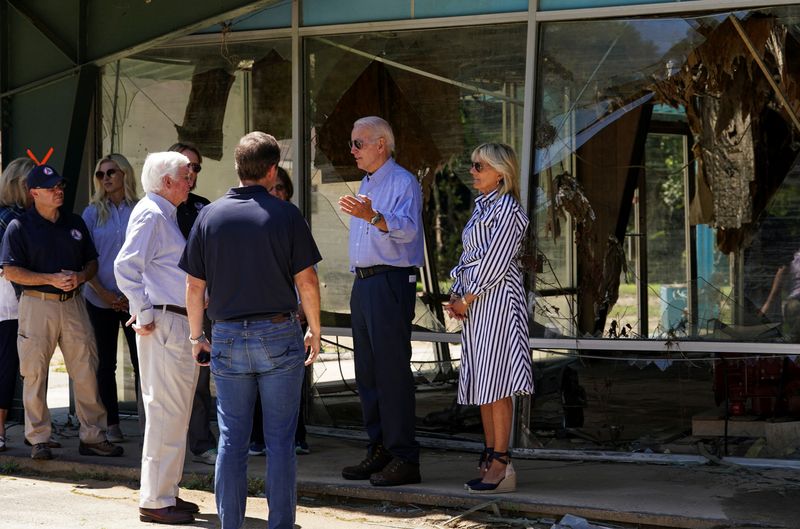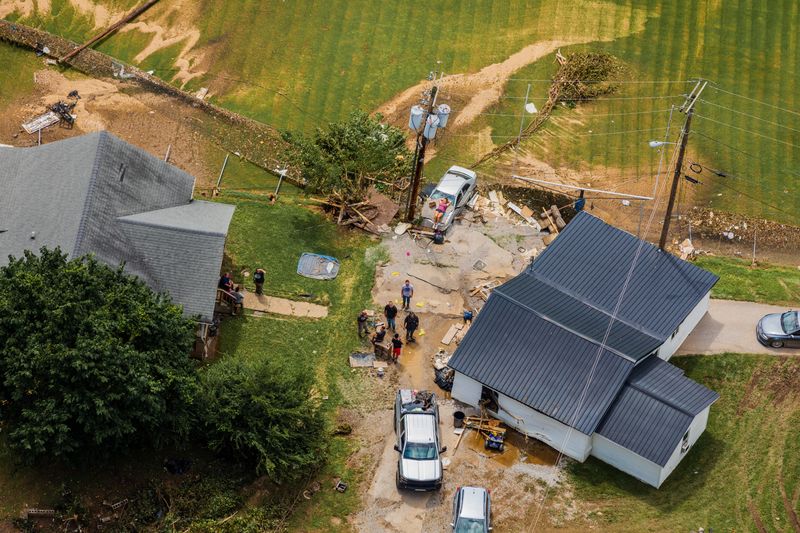By Nandita Bose
LEXINGTON, Ky (Reuters) - U.S. President Joe Biden on Monday surveyed the damaged houses, uprooted trees and mud-filled roads left by severe flooding in eastern Kentucky and linked the devastation to climate change.
Extreme hot weather hit the region as families struggled to recover from flooding caused by torrential rains that began in late July. At least 37 people died, and some survivors escaped the fast-rising water with little more than their lives.
"As you all know, we've suffered the consequence of climate change, a significant number of weather catastrophes around the nation," Biden said at a briefing with state and federal officials on the emergency response.
Biden scored a major victory on Sunday when the U.S. Senate passed a $430 billion bill that includes a clean energy package intended to fight climate change.
Governor Andy Beshear gave an upbeat assessment of the recovery work so far, joking that cell phone service has been restored even to state parks that never had it.
"We've got power to everybody but about 200 homes and that is incredible," Beshear said. "Water to more people than we ever thought was possible."
Biden approved a major disaster declaration for Kentucky last week, freeing up federal funds for emergency work.
Jill Biden helped pack donated clothing at a local school. The Bidens also planned to visit families affected by the disaster. It was the president's first trip since testing negative over the weekend after a bout COVID-19.
The arduous task of cleaning up and rebuilding got under way last week as waters receded and remote areas became more accessible. Mountains of muddy debris, upended vehicles and homes dislodged from their foundations were common sights.

"It's been a really challenging situation to watch unfold," Deanne Criswell, administrator of the Federal Emergency Management Agency, told the emergency response briefing.
FEMA has provided 800 Kentucky residents across 12 affected counties with aid from $13 million in federal disaster relief funds, she said. The agency expects that number to increase and is calling back people who were initially denied aid.
